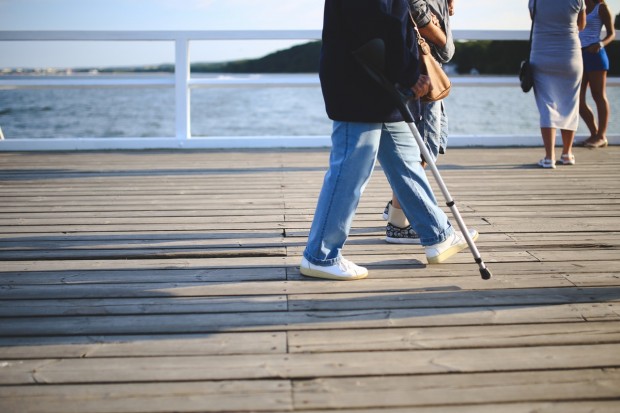10 Things You Need to Know About Personal Injury Cases


From the title, you probably have a clue of what's being talked about here, or maybe have gone through a personal injury case yourself. If that's the case, then stick around to find out things you should or should've known. However, if that's not the case for you and you have no idea what's going on, or you just got yourself in a pickle, then no worries, this article will still come in handy.
So you're aware that in order to win a case, the presence of a good lawyer is essential, and firms like Jones Whyte Lawyers Glasgow will help you with that. Here's a few things you need to know about personal injury cases.
First things first, before knowing all about personal injury cases, you need to know what it entails.
This is a legal term used when injury has been inflicted either to the mind, body or emotions. The person who's inflicted harm will have a lawsuit filed against him/her through reckless behaviour, negligence and in some cases, strict liability.
Some of the types of personal injury claims include:
A car accident.
A medical misdeed.
Home abuse.
Food poisoning.
An accident in the workplace.
Knowing the time limits as to when a legal action to a claim should be started is important as it helps you in the preparation process. An example is of the most common claim, being negligence whose time limit is 3 years.
However, some claims have a time limit that's less than 3 years and others such as childhood abuse don't have a limit in Scotland courts. This means that as an adult, you could still make claims for the damages that had been made
This can be made in different ways, but you should know that it might be expensive. So some of the ways you can pay of the same is through:
Insurance policies - Having an insurance policy will serve you well as they usually have attached a legal expense cover.
Fee arrangement with a firm - One is able to make arrangements with their lawyer with regards to payment. The catch with this is that if you happen to win, you'll pay your lawyer but if you lose then that's it. No payments will be made except to the other party.
If you are receiving compensation benefits, then you should check with your lawyer as sometimes having a compensation payment might have a long term effect. This is in that the benefits must be repaid by the other party to the work and pensions department which may be taken off your compensation. This prevents double payments on the same injury.
Note that this doesn't apply to compensations regarding criminal injustices.
When a personal injury brings about financial problems, then the best thing to do is to consult your lawyer for more guidance. This also applies to any member of your family who has gone through the same.
If your personal injury is due to criminal activity, then you are able to seek compensation through the Criminal Injuries Compensation Authority(CICA).When the person involved happens to die before a report is made, then a close relative can report on the same with haste, due to strict time limits. The incident should then be reported to the police, after which an application to the CICA will be made through an application form.
In some instances where one may be injured in the workplace, a place can be chosen where the claim would be made.
This only occurs when they're two jurisdictions that differ. In this case, one being that of the employer and the other one of the employee.
As a claimant who needs to secure the best results, you need to know that your lawyer should not only have specialized in claims, but also know about the country's procedures, in this case Scotland.
It should also be known that an outside lawyer can't represent you in a Scottish court.
Going through a case alone is sometimes hard. That's why it's advisable to find support and counselling organisations that will help you maintain a clear head throughout the case. One good thing about these organisations is that you won't have to spend a dime on some of them.
The most important bit of making a claim is knowing if it's valid. The best way to know this is to talk to a claim expert who'll then advise you on what to do.
Conclusion
In every legal decision you make, no matter how small, make sure you involve your lawyer. Also remember to take a breather and not put too much pressure on yourself.
© 2023 Lawyer Herald All rights reserved. Do not reproduce without permission.
* This is a contributed article and this content does not necessarily represent the views of lawyerherald.com
Get the Most Popular Lawyerherald Stories in a Weekly Newsletter